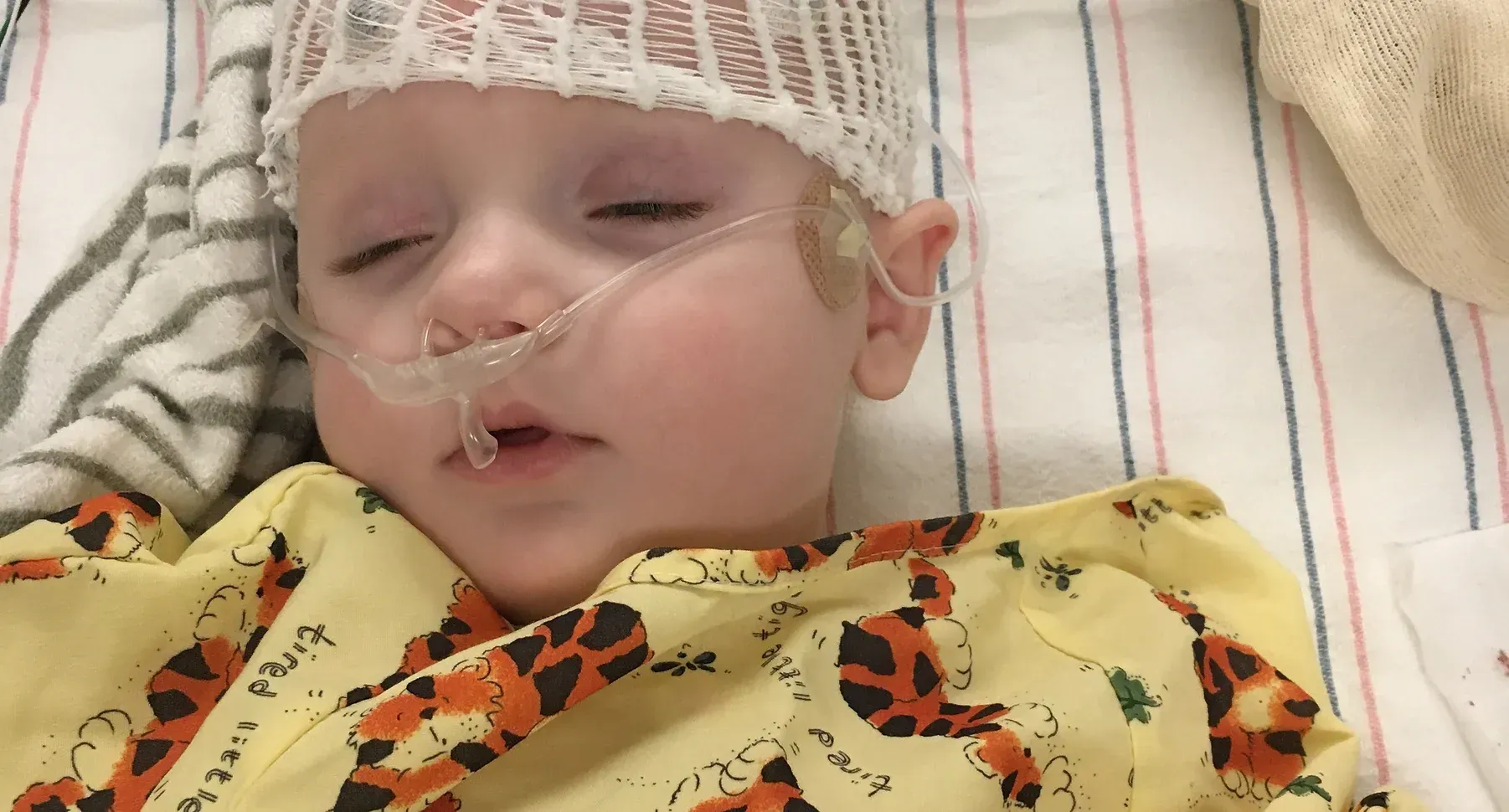Henry's Story
Terrifying Diagnosis
We then met with a genetic counselor who gave us the most devastating news we would ever receive: Henry’s specific mutation, E815K, was linked to a disease called Alternating Hemiplegia of Childhood or AHC. This disease was a one in a million rare, neurological disease for which there was no treatment or cure. She said based on what they know about Henry’s mutation, it is the most severe, and he might never walk or talk. In addition to seizures, he will suffer a variety of neurological symptoms, including temporary partial or full body paralysis impacting his ability to eat and safely swallow, breathing issues such as apneas, and abnormal eye movements, tremors, or painful stiffening of his body called dystonia. Any and all of these symptoms can occur at any time, without warning, and could be triggered by environmental changes such as change in temperature or light, or exertion like tummy time or sitting up, or excitement if many people were around. Or, they could occur for no reason at all. Any of these “episodes” could also cause temporary or permanent regression in any skills Henry has learned. The counselor could not tell us what Henry's prognosis was in terms of development - it was a wide spectrum and no one knew - but likely he would struggle with gross and fine motor skills and speech at the very least.
As we cried in the exam room upon hearing this news, we vowed not to let this disease take our child from us.
We spent the next few months connecting with other parents, US AHC organizations, Cure AHC, Hope for Annabel, and expert doctors in an effort to learn as much about this disease and what we might expect. We became armed with knowledge, more rescue plans, and supply of home medical equipment including a pulse oximeter machine, supplemental oxygen, suction devices, and an ambu-bag. We relied on our doctor’s hopeful advice that we had to be prepared for the worst while hoping for the best and going by what Henry tells us in terms of when he needs support.
During this time, Henry continued to have 3-5 seizures or seizure like episodes weekly, preventing us from even taking him out of our darkened, quiet, bedroom, for we learned that simply bringing him into our well lit living room or putting him down for tummy time would cause an episode. We lived in constant fear of episodes occurring at any moment, and they did.
At 6 months old, Henry’s apneas began. He would randomly struggle to breathe, turning purple or blue, and we would rush to give him oxygen and monitor his saturation and heart rate. At times, we could rescue him and at times we could not and would have to call 911. These apneas occurred 3 days a week, starting on the evening of the first day, persisting hourly on the second day, and concluding in the morning on the third day for the next 10 months of his life. We frequently landed in the ER or ICU once a week on the worst day of apneas for additional rescue meds and breathing support. We could not go anywhere without Henry’s oxygen, rescue meds, and ambu bag as we were unsure of when these apneas would hit.
At 9 months old, Henry’s paralysis began. Often, his right or left arm would suddenly stop working and become weak and this paralysis would last for 7-10 days. Henry would be extremely tired during this time and often have difficulty swallowing when the paralysis affected his head, neck, and mouth. At times, this paralysis would progress to full body paralysis, lasting a total of 7 days, which would land us in the hospital for feeding support.
At 12 months old, we started a non-FDA approved drug to help with his paralysis. We went from experiencing paralysis 14+ days a month to 4-6 days a month. A huge victory.
At 16 months old, we started Henry on the 7th antiepileptic drug he had been on in an attempt to control his frequent apneas, by this time occurring one day a week every hour. It worked for 5 weeks before we had to stop it due to it damaging his liver. We were devastated.
At 18 months old, Henry’s apneas returned during this time and came back with a vengeance. They occurred every 5-10 minutes one day a week every week and often landed us back in the hospital by noon for more rescue meds and breathing support.


